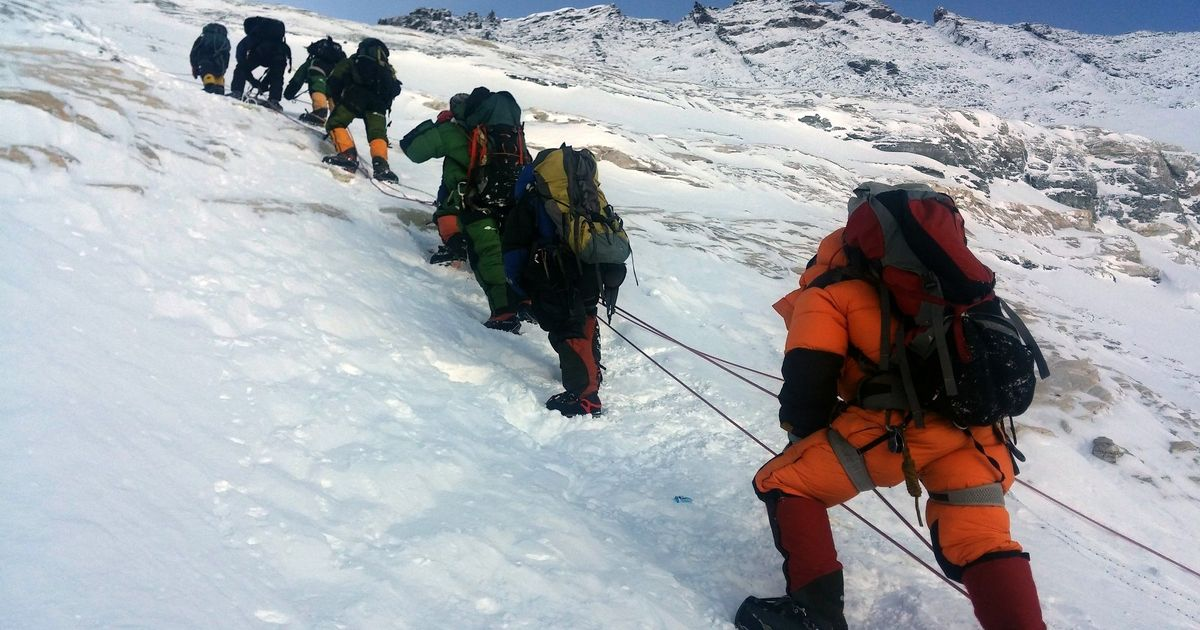
Kathmandu: Nepal has formally prohibited solo expeditions to all mountains exceeding 8,000 meters, including Mount Everest, following amendments to its mountaineering regulations as published in the Nepal Gazette.
The Sixth amendment, issued late Tuesday, establishes that for every two climbers, at least one altitude worker or mountain guide must accompany them on any of the eight-thousand-meter peaks. This rule applies universally to such climbs, including those attempting Everest.
The new regulation also marks the end of solo climbing expeditions, regardless of climbers’ experience, and includes both alpine and expedition-style climbers.
Additionally, the amendments announce a significant increase in the royalty fees for foreign climbers aiming to summit Everest via the standard south route during the spring season, raising the fee from $11,000 to $15,000 per person. The autumn royalty fee has risen from $5,500 to $7,500, while the winter and monsoon fees have increased from $2,750 to $3,750.
For Nepali climbers, the royalty for the normal route in spring season has also doubled from Nrs. 75,000 to Nrs. 150,000. Previously, in 2015, Nepal shifted from a group pricing model to a uniform fee of $11,000 per individual for Everest’s spring route.
The new regulations also restrict family members of climbers, guides, and base camp workers from staying at the base camp, although they can request prior approval from the tourism department for a maximum two-day stay.
Moreover, high-altitude guides will now self-declare the successful summits of their clients, requiring expedition organizers to submit original photos that clearly show the climber’s face with the mountain ranges visible in the background to validate the ascent for an Everest climb certificate.
The provisions also include increased daily allowances for liaison officers, high-altitude guides, and base camp workers. Liaison officers’ wages have risen from Rs. 500 to Rs. 1,600, lead Sherpas’ pay has increased to Rs. 1,500 from Rs. 500, high-altitude guides now earn Rs. 1,200, up from Rs. 350, and base camp workers’ wages have climbed from Rs. 300 to Rs. 1,000.
To address pollution in high-altitude areas, climbers must carry their waste, including human waste, back to base camp for proper disposal, using biodegradable bags for waste collection in higher reaches.
Since 1953, nearly 8,900 individuals have summited Everest from Nepal’s side, and these new regulations will take effect on September 1, coinciding with the start of the spring climbing season.
